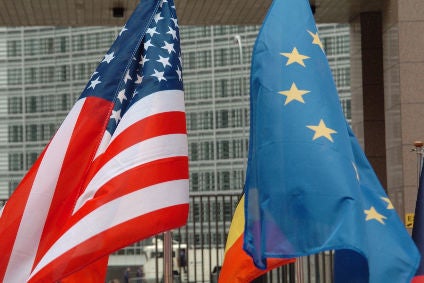
US trade chiefs have taken the first steps towards reinstating “retaliatory tariffs” against European Union member states and EU goods and products over “unfair trade practices” that ban imports of hormone-treated beef products from the US.
United States Trade Representative Michael Froman will convene a public hearing in Washington DC later this month to discuss a call by the US beef industry to retaliate.

Discover B2B Marketing That Performs
Combine business intelligence and editorial excellence to reach engaged professionals across 36 leading media platforms.
Froman’s office said in a statement the EU’s ban on US beef was “not based on sound science and discriminates against American beef farmers, ranchers, and producers”. The hearing will review public comments on EU products and EU member states “that may be subject to the imposition of additional duties, with the goal of resolving this dispute”, the statement said.
However, a spokesperson for the European Commission, the EU’s executive body, told just-food today (10 January) the EU is standing firm on the issue and only products complying with the bloc’s “high food safety and health standards will be allowed into the EU market”.
The dispute dates back to nearly 20 years ago, when the EU lost a case at the World Trade Organization (WTO) for banning American beef. In 2009, the US and EU signed a memorandum of understanding (MOU) under which the EU agreed to set a duty-free quota for imports of specially-produced beef to compensate the US for losses arising from the EU’s ban on the use of hormones in beef production.
According to the US National Cattlemen’s Beef Association (NCBA), imports under the quota “have grown steadily since then, and for the past two years, the entire 45,000 tonne quota has been filled, though from countries other than the US”.

US Tariffs are shifting - will you react or anticipate?
Don’t let policy changes catch you off guard. Stay proactive with real-time data and expert analysis.
By GlobalDataNCBA president Tracy Brunner said the EU had “violated the spirit of that agreement and caused US beef exports to become a minority interest in a quota meant to compensate US beef producers”.
US trade officials claim the EU had wanted to resolve the issue during the Transatlantic Trade & Investment Partnership (TTIP) negotiations, which ended without agreement in 2016. The US said its beef industry exports average $6bn per year, produce an estimated $7.6bn in economic activity and support 50,000 jobs.
Froman said: “The WTO determined that the EU’s ban on US beef imports violates its international trade obligations. The EU has failed to live up to assurances to address this issue.” He said the moves towards retaliatory action are “an important step in encouraging the European Commission to come back to the table to ensure that American ranchers have access to Europe’s market and that European consumers have better access to high-quality US beef”.
The European Commission’s spokesperson told just-food: “The EU has fully complied, both in letter and in spirit, with the MOU signed with the US in 2009, establishing a hormone-free beef quota of more than 60,000 tonnes. The termination of this agreement and the possible application of duties on EU exports to the US would certainly constitute a most unfortunate step backwards in the strong EU-US trade relations.”
“Meanwhile, the EU will continue implementing the EU-US MOU and stands ready to listen to any concern that the US administration may wish to raise,” the spokesperson added. “Changing the EU’s ban on hormone-treated beef was never part of the negotiations with the US for a trade agreement.”





